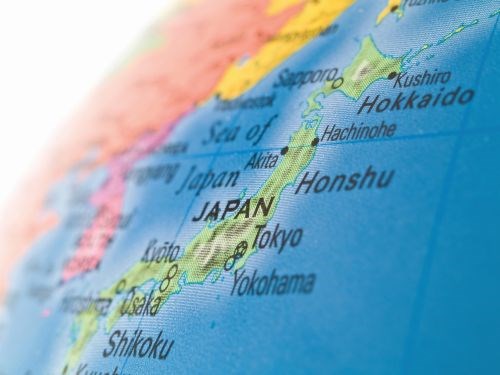Things are Hot in Japan: Week 2
After a somewhat gypsy-like first week, three hotels in 5 days, we settled into the Marriott in Nagoya as our base of operations for Week 2’s plant visits.

After a somewhat gypsy-like first week (three hotels in 5 days), we settled into the Marriott in Nagoya as our base of operations for Week 2’s plant visits. By the way, the 100-degree plus temps and high humidity did not let up during our second week.
Since these visits involved taking trains most days, our hotel was well located above the main station. Japan’s train system is excellent and quite foreign traveler friendly.
Our first visit of the week was to Citizen Machinery Miyano. Like many Swiss machine makers, it is located in the mountains near Japan’s west coast. There must be something about altitude and sliding headstocks.
Citizen Watch Company was founded in 1930 and shortly after began developing machine tools for its own production. Successful, it decided in 1961 to take its proprietary machines onto the commercial market. The rest is history.
In 1985, Marubeni Citizen-Cincom (MCC) was established to import and distribute machine tools in the U.S. The company’s line of Swiss-type machines covers the gamut of sizes from 4 to 32 mm in diameter.
In 2011, the company merged with Miyano Machinery and added that company’s line of fixed headstock CNC turning machines to its stable. The Miyano line covers bar and blank sizes from 20 to 64 mm.
New from Citizen is a suite of software packages the company is rolling out under the name alkapplysolution. These include alkartoperation, which allows for shop floor or remote monitoring of internal machine conditions as well as the ability to make inputs from any location. Also included is alkartschool for e-learning at the convenience of the customer and alkartsite, which enables shops to diagnose and repair minor machine failures in-house.
Look for these new manufacturing aids as they are rolled out. More detailed coverage of them will appear in upcoming issues of PM. Learn more about alkapply here.
Back to our base in Nagoya, we dine out at Yamachan, which is a Japanese chain of chicken wing joints. Short on ambiance, but long on good wings, it is a nice respite.
Day 2, Week 2 finds us taking the train to Fukui, home of machining center builder Matsuura. Our host is company president Katsu Matsuura who runs the company his grandfather founded in 1935.
To better serve the U.S. market, the company recently opened a direct office in St. Paul as the master importer of all things Matsuura. Matsuura’s line includes horizontal and vertical CNC machining centers that can be configured with three- to five-axis single table, twin and multi-pallet systems, twin spindles, cell systems and linear motor equipped machines.
In its manufacture, like many builders, Matsuura uses the latest technology to manufacture its machine tools—including many of its own machines. The shop floor is heavy with automation to achieve economies of scale that provide consistent quality, faster throughput with more efficient use of labor.
Last, we were given a demonstration of something new and different in a machine called Lumex Advance 25. It’s a metal laser sintering hybrid milling machine. Developed by Matsuura at the behest of one of Japan’s large electronics companies, this machine uses additive manufacturing technology to lay up 3D metal parts, sinters them and with an integral milling spindle is able to perform machining operations as needed. All these operations are performed with a single handling. A machine that can build a workpiece and machine it; I felt like I was seeing the future—and perhaps I was.
Our last working day in Japan brought us to turning center maker, Fuji Machine Manufacturing. Strategically located near Toyota City, its primary industry served is automotive.
Fuji manufactures a full line of turning centers for volume production using stand alone and line flow part processing. It manufactures horizontal and vertical spindle orientations along with mill/drill/centering multi-tasking machines and hard turning centers. They also manufacture integral loaders for automating the workflow across multiple spindles and machines for chucked blanks. In business since 1959, Fuji is imported to the U.S. through its office in Vernon Hills, Ill.
Well, that’s it for the summer trip to Japan. Now it’s back to the hotel to pack and get ready to fly over the big pond. As interesting and educational as this trip has been, it’s always good to get home.



